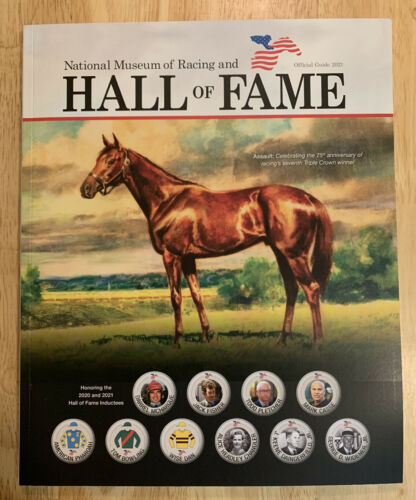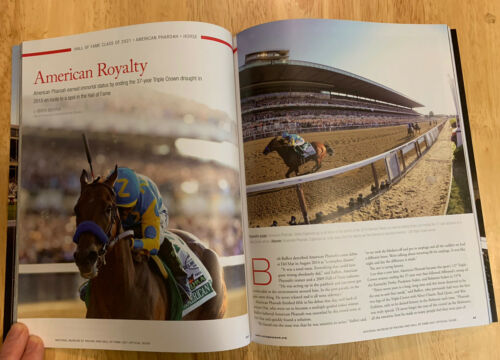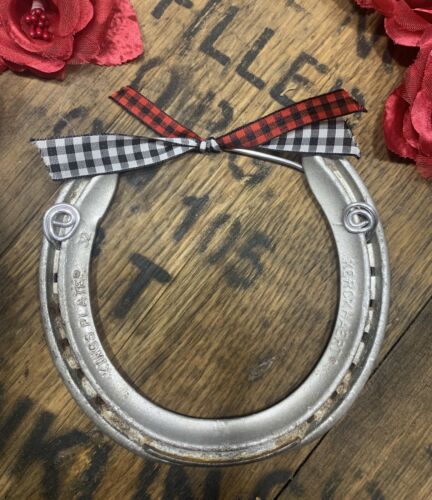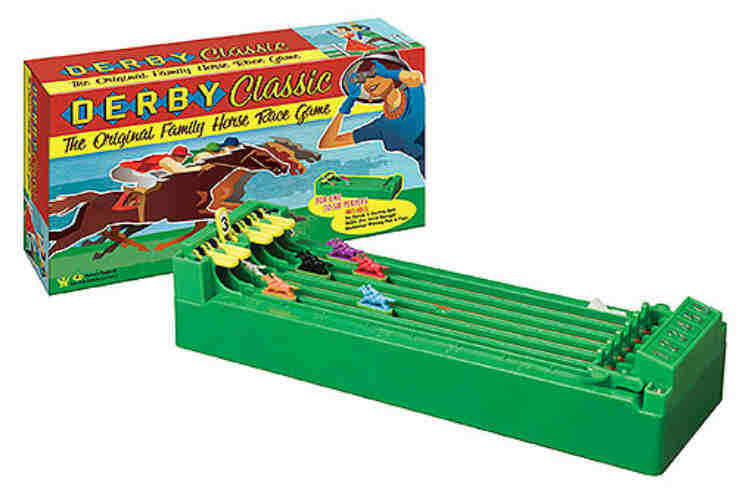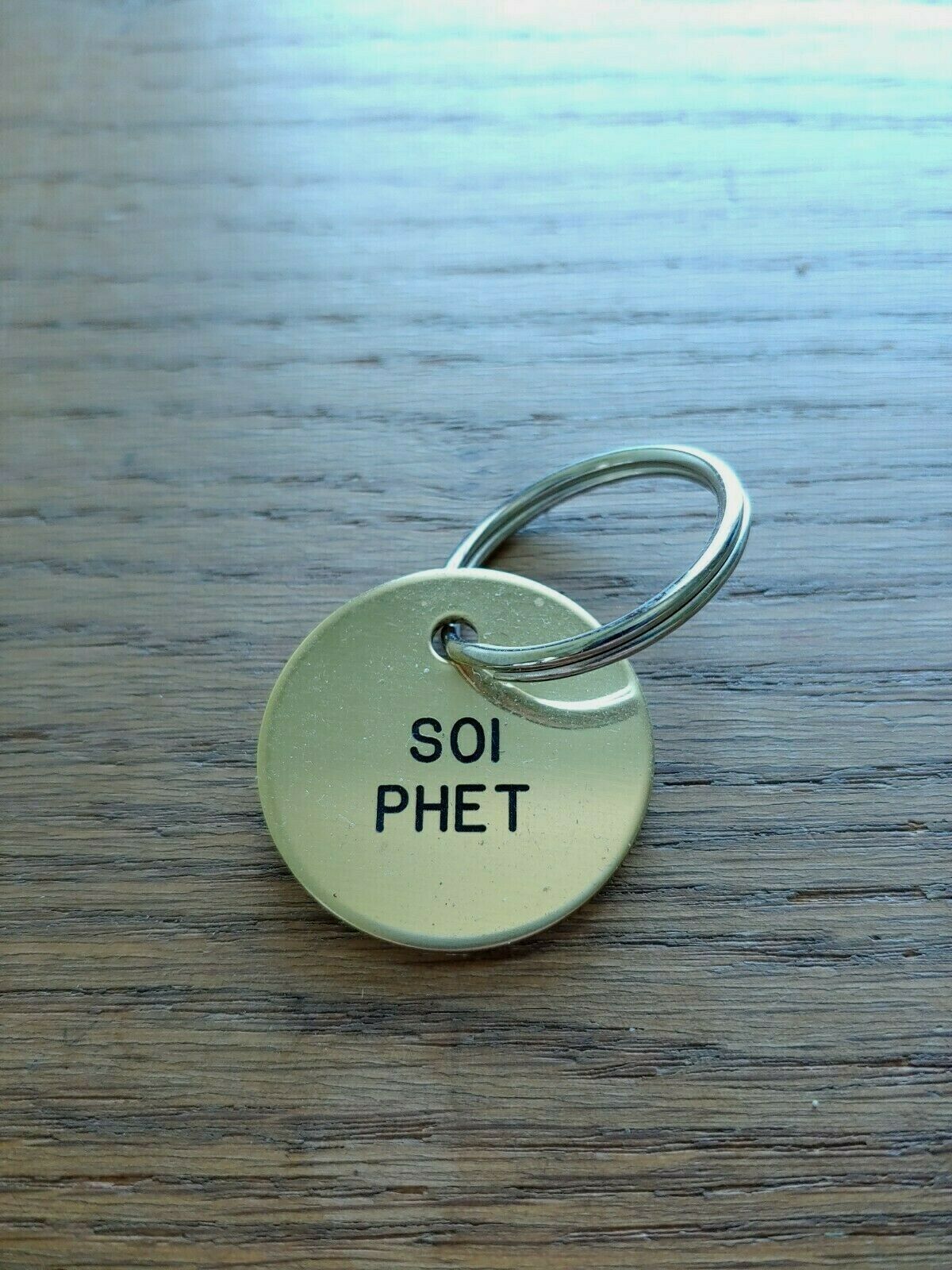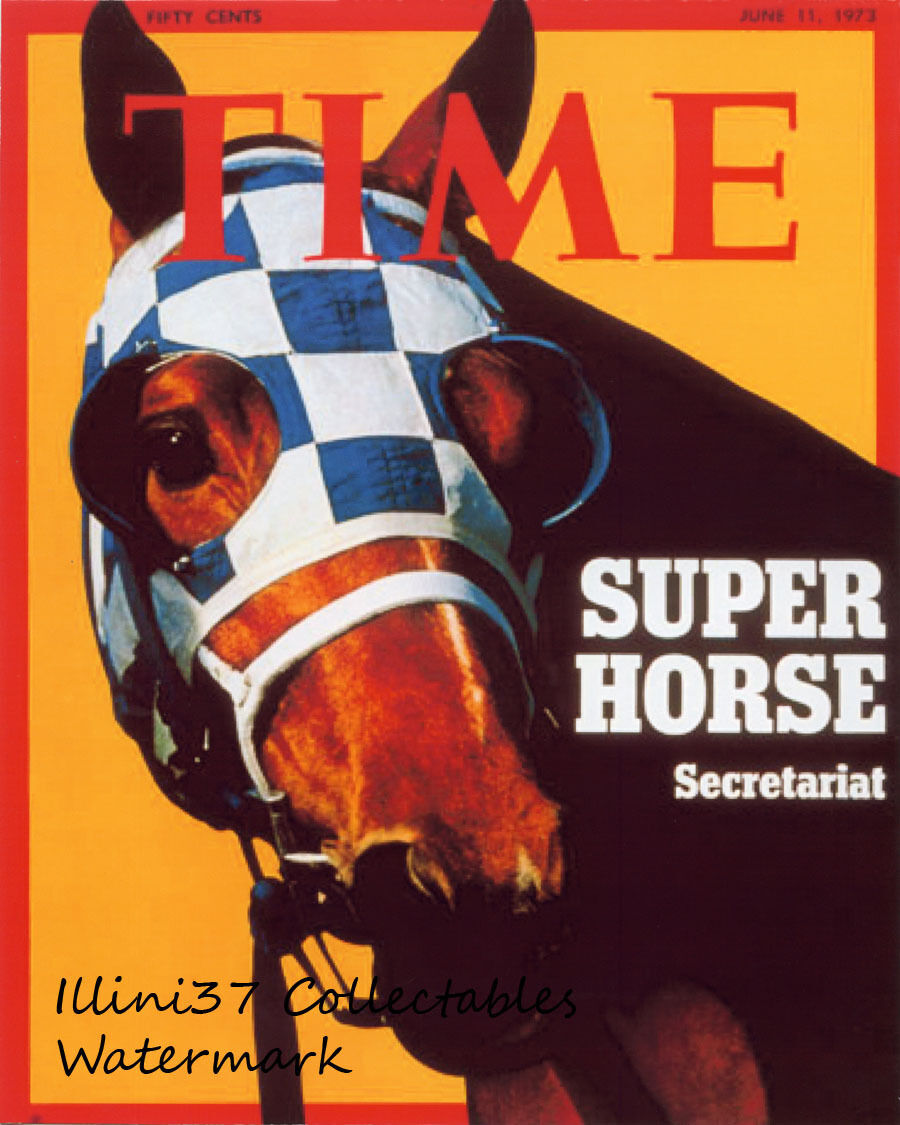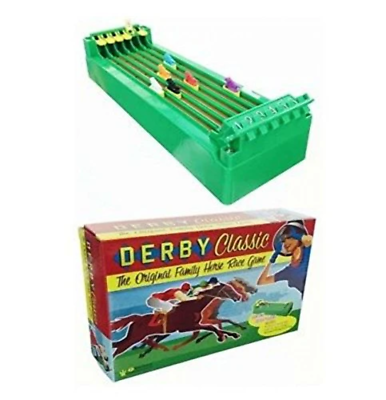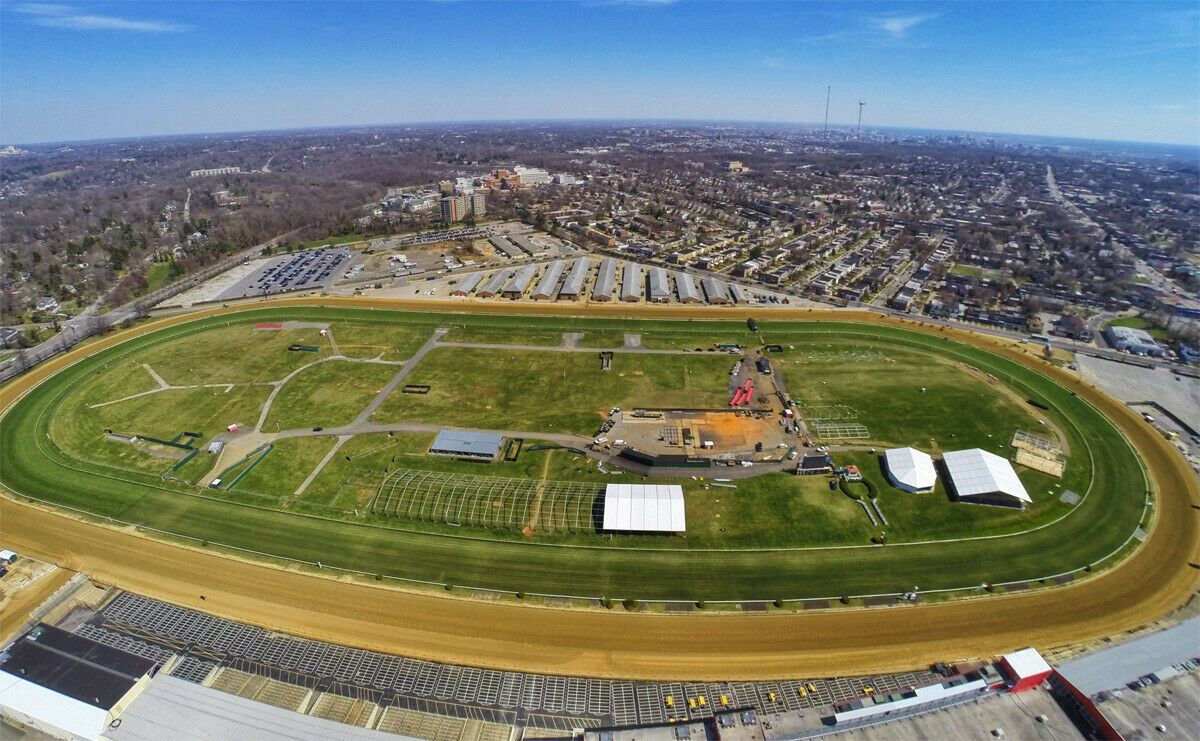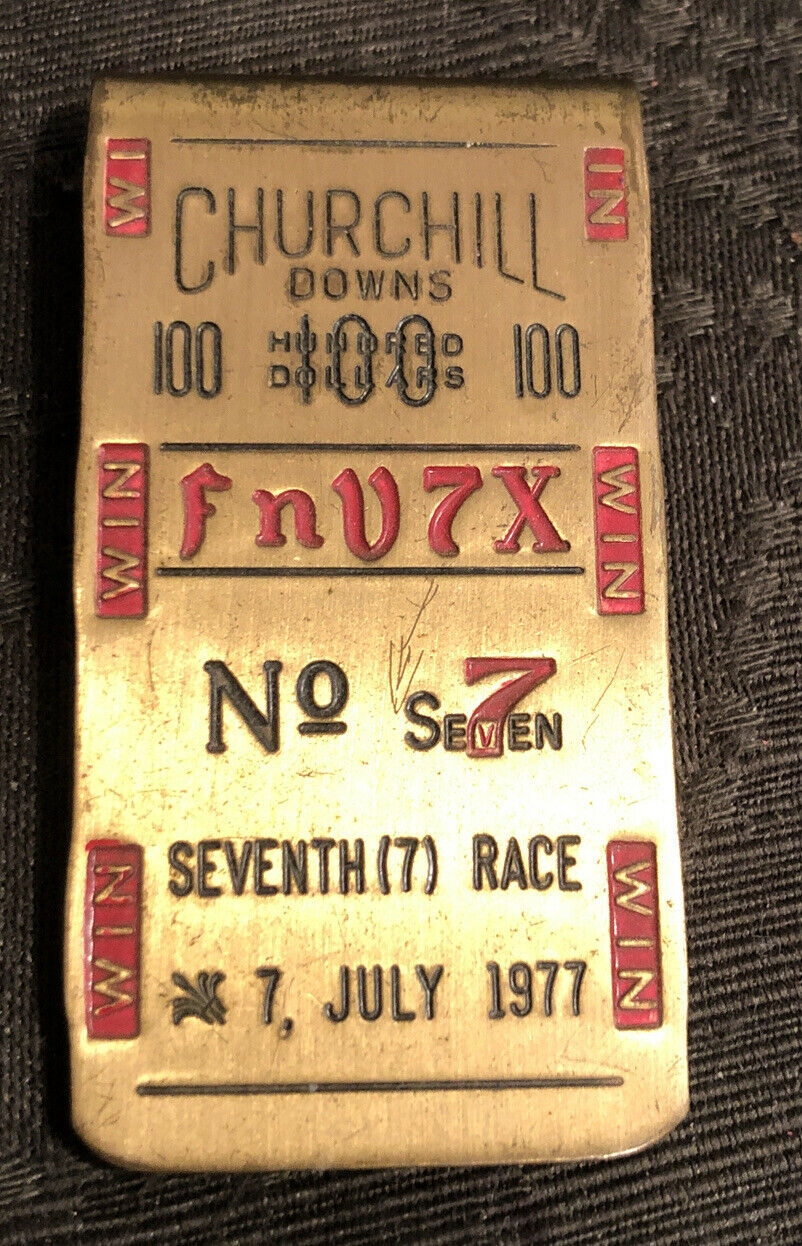-40%
American Pharoah 2021 Horse Racing Hall of Fame Program, 2020, Pharaoh, Pletcher
$ 10.55
- Description
- Size Guide
Description
Up for sale is a 2021 official guide to the National Thoroughbred Racing Hall of Fame and Museum. This covers the 2021 Hall of Fame induction which included American Pharoah, Todd Pletcher and Jack Fisher. It's also for the 2020 inductees horses Wise Dan and Tom Bowling, jockey Darrel McHargue, trainer Mark Casse, and Pillars of the Turf selections ALice Headley Chandler, J. Keene Daingerfield Jr., and George D. Widener Jr.It’s in great condition. Thanks for looking and good luck.
Triple Crown winner American Pharoah (KY), seven-time
Eclipse Award-winning trainer Todd Pletcher, and 13-time champion steeplechase
trainer Jack Fisher comprise the National Museum of Racing’s 2021 Hall of Fame
class. American Pharoah and Pletcher were elected in the contemporary category
in their first year of eligibility and Fisher was chosen by the Museum’s
Steeplechase Review Committee, which meets once every four years.
The class of 2021 will be enshrined along with the 2020
inductees — trainer Mark Casse, jockey Darrel McHargue, horses Tom Bowling and
Wise Dan, and Pillars of the Turf Alice Headley Chandler, J. Keene
Daingerfield, Jr., and George D. Widener, Jr.
American Pharoah (Pioneerof the Nile—Littleprincessemma, by
Yankee Gentleman) ended racing’s 37-year Triple Crown drought when he swept the
Kentucky Derby, Preakness Stakes, and Belmont Stakes in 2015. A bay colt bred
in Kentucky by owner Zayat Stables, American Pharoah was trained by Hall of
Famer Bob Baffert and ridden by Hall of Famer Victor Espinoza. Beginning his career
in California, American Pharoah won the Eclipse Award for Champion 2-Year-Old
Male in 2014 thanks to Grade 1 victories in the Del Mar Futurity and
FrontRunner Stakes.
As a 3-year-old, American Pharoah won the Grade 2 Rebel
Stakes and the Grade 1 Arkansas Derby before becoming America’s 12th Triple
Crown winner. Following the Triple Crown series, American Pharoah went on to
win the Grade 1 Haskell Invitational and the Grade 1 Breeders’ Cup Classic,
setting a track record of 2:00.07 for 1¼ miles at Keeneland in the Classic.
Overall, American Pharoah posted a record of 9-1-0 from 11 starts and earned
,650,300. He was voted Horse of the Year and Champion 3-Year-Old Male for
2015.
“He’s certainly among the all-time greats. I don’t think
there is any question about that,” Baffert said. “He did everything so
effortlessly and with such class. The way he moved, his mechanics were
absolutely flawless. He also has such a wonderful personality. Pharoah is
really a sweet and kind horse and he loves humans. I went and saw him the other
day (at Coolmore’s Ashford Stud) and he looks as good as he’s ever looked, if
not better. Winning the Triple Crown with American Pharoah was the greatest
sports moment of my life. It was so emotional and such a terrific thing for racing.
He deserves all the accolades he gets.”
Todd Pletcher, 53, a native of Dallas, went out on his own
after working as an assistant to Hall of Fame trainer D. Wayne Lukas from 1989
through 1995. He won his first race in January 1996 with Majestic Number at
Gulfstream Park. A graduate of the University of Arizona, Pletcher owns records
for career earnings (5,791,977) and Eclipse Awards (seven) and ranks seventh
all time in wins (5,118). He has won the Kentucky Derby with Super Saver (2010)
and Always Dreaming (2017) and the Belmont Stakes with Rags to Riches (2007),
Palace Malice (2013), and Tapwrit (2017). Pletcher has won 11 Breeders’ Cup
races, including the 2019 Classic with Vino Rosso. He has led all North
American trainers in earnings 10 times.
Pletcher has trained 11 Eclipse Award-winning horses — Hall
of Famer Ashado, English Channel, Fleet Indian, Lawyer Ron, Left Bank, Rags to
Riches, Shanghai Bobby, Speightstown, Wait a While, Uncle Mo, and Vino Rosso —
and 20 horses that have earned .8 million or more. He has won a total of 60
individual meet training titles: 17 at Gulfstream, 16 at Belmont, 14 at
Saratoga, six at Aqueduct, five at Keeneland, and two at Monmouth.
According to Equibase data, Pletcher has won 708 graded
stakes, including 166 Grade 1s. He is enjoying another standout year so far in
2021 with 81 wins and earnings of ,686,786 through May 4. He recently won the
Grade 1 Kentucky Oaks for the fourth time in his career with the undefeated
Malathaat. Pletcher has also won four or more editions of the Beldame,
Champagne, Coaching Club American Oaks, Florida Derby, Mother Goose, Spinaway,
Spinster, and Wood Memorial, among others. He has won four Canadian Triple
Crown races.
“I’m really humbled to be elected to the Hall of Fame. It’s
an incredible honor and something that doesn’t happen without having great
support around you,” Pletcher said. “I’ve been extremely fortunate to have a
great team to work with and my family has been there every step of the way.
There have been so many great owners who have trusted me with their horses and
those horses have meant everything to me. Along with my family and team, I had
amazing opportunities to learn from the likes of Wayne and Jeff Lukas and
working winters alongside Kiaran McLaughlin, who taught me a lot about horses
and also how to work with owners and communication skills. It really was a
stroke of good fortune to come up with people like that around me.
“Training horses is all I ever wanted to do. I remember
being 11 or 12 and telling my mom I wanted to train and she said it was
wonderful. From that point on with her endorsement I never thought of doing
anything else.”
Jack Fisher, 57, a native of Unionville, Pa., won his first
race as a trainer in 1988 at Middleburg, Va., with Call Louis and has been a
consistently dominant force atop the National Steeplechase Association
standings for the past 20 years. Fisher topped all steeplechase trainers in
wins for the first time in 2003 and has led the list an additional 12 times
since. In 2004, he led the earnings list for the first of eight times to date.
Fisher has ranked in the top five in both NSA wins and earnings each of the
past 20 years. Through May 4, Fisher has won 593 career steeplechase races and
ranks second all time in purse earnings with more than .8 million (behind
only Hall of Famer Jonathan Sheppard).
Fisher is the only trainer in steeplechase history to
surpass million in purse earnings in a year, something he has accomplished
five times. He trained two-time Eclipse Award winner and Hall of Fame member
Good Night Shirt, one of only three horses to earn million in steeplechase
racing (along with Hall of Famers Lonesome Glory and McDynamo). Good Night
Shirt won a total of 10 graded stakes, including eight Grade 1 events, and
twice set the single-season NSA earnings record. Fisher also trained Eclipse
Award winners Scorpiancer (2017) and Moscato (2020). He has trained an
additional 18 horses that have won NSA division championships: timber champions
Bubble Economy, Call Louis, Charlie’s Dewan, Doc Cebu, Gus’s Boy, Saluter, and
Two’s Company; novice champions All Together, Paradise’s Boss, Moscato, and
Snap Decision; filly and mare champions Footlights and Ivy Mills; and
3-year-old champions Hope For Us All, Ice It, Machete Road, Schoodic, and South
Of Java.
Fisher has won the Temple Gwathmey six times (including 2021
with Snap Decision), five editions of the Iroquois, four runnings of the A. P.
Smithwick, three renewals of the Lonesome Glory, and both the Colonial Cup and
Grand National twice. With timber champion Saluter, Fisher won six consecutive
editions of the Virginia Gold Cup and four runnings of the Virginia Hunt Cup.
Fisher has won the Virginia Gold Cup 12 times as a trainer and nine times as a
rider — both records. Fisher rode Saluter to each of his Gold Cup victories.
According to Equibase, Fisher won 57 races as a jockey with earnings of
3,243, including 4,189 as Saluter’s pilot.
“I’ve always loved being around horses. It’s been my life,”
Fisher said. “I was terrible in school and didn’t want to be there. I loved
riding and I love training. I learned a lot from my father (trainer John
Fisher) and from guys like (Hall of Fame trainers) Mikey Smithwick and Tommy
Voss. They were examples to me of the work it takes to be successful and also
how they built a good team. You can’t do it alone.
“I’ll never forget horses like Call Louis and Woody Boy
Would and Saluter that made my career at the beginning. They got the ball
rolling for me. Saluter was really the one. My license plate says Saluter on
it. He meant everything. I’ve had some wonderful and patient owners and great
talent in the barn. To have horses like Good Night Shirt, Scorpiancer, Moscato,
and Snap Decision has been incredible beyond words. I’m pretty darn lucky.”
Seven new members have been elected to the National Museum
of Racing and Hall of Fame including the contemporary selections of trainer
Mark Casse and two-time Horse of the Year Wise Dan.
The class of 2020 also includes jockey Darrel McHargue and
racehorse Tom Bowling via the Historic Review Committee; and Pillars of the
Turf selections Alice Headley Chandler, J. Keene Daingerfield, Jr., and George
D. Widener Jr.
Casse, 59, a native of Indianapolis, Ind., took out his
trainer's license in Massachusetts at the age of 17 and saddled his first
winner at Keeneland with Joe's Coming, his first starter, in April of 1979.
According to Equibase data, Casse has won 2,865 races with purse earnings of
4,628,624 (No. 9 all-time) through May 3. Successful in both the United
States and Canada, Casse has won the Sovereign Award for Outstanding Trainer in
Canada a record 11 times and was inducted into the Canadian Racing Hall of Fame
in 2016. He won two-thirds of the American Triple Crown in 2019 when War of
Will won the Preakness Stakes and Sir Winston prevailed in the Belmont Stakes.
Casse has trained Eclipse Award winners Classic Empire,
Shamrock Rose, Tepin, and World Approval, as well as Canadian Horse of the Year
honorees Catch a Glimpse, Lexie Lou, Sealy Hill, Uncaptured, and Wonder Gadot.
He has won a total of seven races in the Canadian Triple Crown series (the
Prince of Wales four times, the Queen's Plate twice, and the Breeders' Stakes
once), five Breeders' Cup races (the Mile twice, as well as the Filly and Mare
Sprint, Juvenile, and Juvenile Fillies Turf), and the Queen Anne Stakes at
Royal Ascot with Tepin. Casse has trained 18 horses that have won million or
more and has been the leading trainer at Woodbine (11 times), Turfway Park
(four times), Keeneland (three times), and Churchill Downs (twice).
Wise Dan (Wiseman's Ferry—Lisa Danielle, by Wolf Power) was
bred and owned by Morton Fink and trained by Charles LoPresti. Named Horse of
the Year in 2012 and 2013 and champion older male and champion male turf horse
in both of those years, Wise Dan, a chestnut gelding, compiled a career record
of 23-2-0 from 31 starts and earnings of ,552,920 while competing from
2010-2014.
Wise Dan won 19 graded stakes, including 11 Grade 1 events.
He won on turf, dirt, and synthetic surfaces at seven tracks. Wise Dan won the
Breeders' Cup Mile at Santa Anita Park in both 2012 and 2013. He also won the
Woodbine Mile, Shadwell Turf Mile, Maker's 46 Mile, Woodford Reserve Turf
Classic, Fourstardave Handicap, and Firecracker Handicap twice each.
"We were hoping he would get it," LoPresti said of
Wise Dan being selected in his first year of eligibility. "I felt like he
deserved it. We're really pleased for the horse, and the Finks and everybody
involved. We're really proud of the horse and what he accomplished. I think it
was well deserved."
LoPresti said he'll never forget how much he enjoyed working
with a horse of Wise Dan's level.
"When you look back on it, you realize what a
wonderful, wonderful horse he was, a once-in-a-lifetime horse. It's hard to
find horses like that," LoPresti said. "People spend millions,
trainers have hundreds (of horses). It's really fantastic to have a horse like
that, and what he accomplished every time he went over there. After he's gone,
you deal with mediocre horses, you realize how good he was, everything he
overcame. Whether he got a bad post position, a bad break, a bad turf course,
he ran every time. You don't see that in horses all the time.
LoPresti said Wise Dan is enjoying his retirement.
"He's living with his brother, Successful Dan, here at
our farm. He's happy as can be. He gets a lot of visitors to see him,"
LoPresti said. "We took him over to Old Friends last summer—they had a
Wise Dan day over there—it was really incredible the people that came to see
him, the fans that came to see him; and how much money was raised on Wise Dan
day for Old Friends. We took him over there. He wasn't forgotten. He walked off
that trailer, around that place, like he owned it. He's still a pretty
incredible horse. He has a different personality than most horses.
One regret for the connections was that Fink did not live to
see Wise Dan's selection for the Hall. Fink died in November.
"He would be over the moon. He loved that horse. He
used to tell me all the time that was the only thing that kept him going was
that horse and to be able to watch him run, to call me and talk to me about
him," LoPresti said. "When that horse retired, that was a big void in
his life, a big void in all of our lives—the horse is still here, but the
retirement from racing and everything. It was a big void. He lived for that
every day ...
"That horse did so much for all of us. As bad of health
as Mr. Fink was in, that horse kept him going. That horse gave him something to
live for every day. That's what he used to tell me all the time."
McHargue, 65, a native of Oklahoma City, Okla., won 2,553
races and had purse earnings of ,609,526 in a career that spanned from
1972-1988. In 1978, McHargue won both the Eclipse Award for Outstanding Jockey
and the George Woolf Memorial Jockey Award. That year, he set a North American
record with ,188,353 in purse earnings, led all riders with 37 stakes wins,
and finished second nationally with 375 wins. McHargue won a career-best 405
races in 1974 (No. 2 in North America). He began a six-year stretch of ranking
among the top 10 North American jockeys in earnings that year.
McHargue won the 1975 Preakness Stakes with Master Derby.
According to Equibase data, McHargue won 79 graded stakes from 1976-1988. His
Grade 1 wins included the Arlington-Washington Futurity, Santa Margarita
Invitational Handicap, San Juan Capistrano Handicap, Hopeful Stakes, San
Antonio Stakes, Charles H. Strub Stakes, Swaps Stakes, Santa Anita Handicap,
Sunset Handicap, San Luis Rey Stakes, Hollywood Invitational Handicap, Oak Leaf
Stakes, Santa Anita Derby, and Hollywood Derby.
McHargue also spent some time riding in Ireland and England,
winning several stakes, including the 1984 Irish St. Leger at the Curragh and
the 1984 Jockey Club Cup at Ascot. McHargue won six graded stakes with Hall of
Famer John Henry. He also won stakes aboard Hall of Famers Ancient Title and My
Juliet, as well as General Assembly, Run Dusty Run, and Vigors, among others.
McHargue won six races on a single card at Santa Anita in
both 1978 and 1979. He has been a steward in California since 1990 and was named
the state's chief steward in 2015.
Tom Bowling (Lexington—Lucy Fowler, by Albion) was bred and
owned by Hal Price McGrath and trained by Hall of Famer Ansel Williamson. A bay
colt foaled in 1870, Tom Bowling lost his first two starts as a juvenile before
winning 14 of his next 15 races. He broke his maiden in the 1872 Flash Stakes
at Saratoga Race Course, then won the Thespian Stakes at Monmouth Park,
covering six furlongs in 1:16 3/4, the fastest time to that date by a
2-year-old at the distance. Tom Bowling won seven of his eight starts as a
3-year-old, including the Jersey Derby at 1 1/2 miles, the Robbins Stakes at
two miles, the Travers Stakes at 1 3/4 miles (defeating Belmont winner
Springbok), the Jerome Stakes, the Annual Sweepstakes at two miles, and the
Dixie Stakes at two miles.
Tom Bowling won all four of his races as a 4-year-old in
1874, including the 2 1/2-mile Monmouth Cup and the 2 1/2-mile Mansion House
Stakes. He also won purse races at 1 1/2 and three miles. Tom Bowling was
retired with a record of 14-3-0 from 17 starts and earnings of ,350. He was
retrospectively recognized as the champion
2-year-old male of 1872 and Horse of the Year and champion 3-year-old
male of 1873 by the editors of The Blood-Horse in the book "The Great Ones."
Alice Headley Chandler, 94, founded Mill Ridge Farm in
Lexington. She began the operation in 1962 after receiving four broodmares and
286 acres from her father, Hall of Fame member Hal Price Headley, upon his
passing. Mill Ridge has since expanded to more than 1,100 acres. Chandler bred
1968 Epsom Derby winner Sir Ivor, establishing the farm as an international
source of top performers, as the colt became the first American-bred sold at
public auction to win the prestigious race.
Attica, Sir Ivor's dam, was one of the original mares
bequeathed to Chandler by her father. Sir Ivor was sold at the 1966 Keeneland
July sale for ,000 to Raymond Guest. Sir Ivor's influence started the trend
of American-bred European classic winners and was a major turning point for
Keeneland and the American commercial market, as foreign buyers began traveling
to the United States to buy classic winners. Chandler was honored by the
Thoroughbred Club of America as the Honored Guest at its Testimonial Dinner in
2005 and she received the 2009 Eclipse Award of Merit.
Chandler has served as chairperson of the University of
Kentucky's Gluck Equine Research Foundation, president of the Kentucky
Thoroughbred Association, and as a director of the Breeders' Cup, Keeneland
Association, and the Thoroughbred Owners and Breeders Association. Some of the
horses raised at Mill Ridge include Hall of Famer Point Given, Kentucky Derby
winner Giacomo, and champion Havre de Grace. Since 2000, Mill Ridge has raised
or sold 34 Grade 1 winners, including six Breeders' Cup winners.
J. Keene Daingerfield Jr. (1910-1993) was born in Lexington,
and attended the University of Virginia before becoming a trainer and
eventually one of the most respected stewards in the sport's history.
Daingerfield had moderate success as a trainer and wrote the book
"Training for Fun (and Profit, Maybe)" before serving in the U.S.
Army Corps of Engineers in World War II. He resumed training after the war
before accepting a steward's position at Narragansett Park in 1948.
Daingerfield went on to serve as chief state steward in Kentucky from 1973-1985
and held the same role in New Jersey (1966-1973) and Illinois (1953-1956). He
was an association steward at a total of 17 tracks.
In 1985, Daingerfield was honored with the Eclipse Award of
Merit. Following his retirement as state steward in Kentucky, Daingerfield
served as a steward at Keeneland until 1989. He was elected to The Jockey Club
in 1989. Daingerfield also was presented the William C. Coman Humanitarian
Award by the Kentucky Thoroughbred Owners and Breeders Association and the Joe
Palmer Award by the National Turf Writers Association. Known for his integrity,
dignity, and racing expertise, Daingerfield is widely considered one of the
finest officials in racing history.
George D. Widener Jr. (1889-1971) was a Philadelphia native
and one of the most prominent figures in American racing during the 20th
century, influencing the sport as an owner, breeder, and leader. Widener was
elected to The Jockey Club in 1916 and won his first race as an owner that year
at Pimlico Race Course. The owner of Erdenheim Farm near Philadelphia and Old
Kenney Farm near Lexington, Widener bred 102 stakes winners, including
champions Jamestown, High Fleet, Platter, Stefanita, Evening Out, Jaipur, and
What a Treat. He also bred and owned Hall of Fame member Eight Thirty, winner
of the Travers, Whitney, Suburban, Metropolitan, Toboggan, and Massachusetts
handicaps. Jaipur won the Belmont and Travers for Widener in 1962. Widener also
owned champion Battlefield, another of his record-tying five Travers winners.
Chairman of The Jockey Club for 14 years, Widener also
chaired the Greater New York Association (the forerunner of NYRA), served as
president of the National Museum of Racing and Hall of Fame, and director of
the Thoroughbred Club of America. He was the Thoroughbred Club of America's
Honored Guest in 1942 and was named the first Exemplar of Racing by the
National Museum of Racing and Hall of Fame in 1971.
